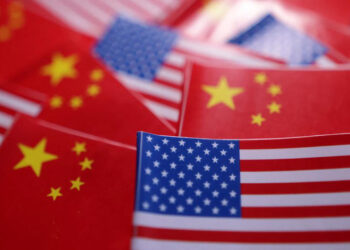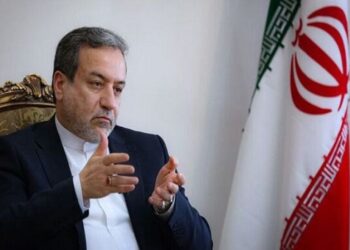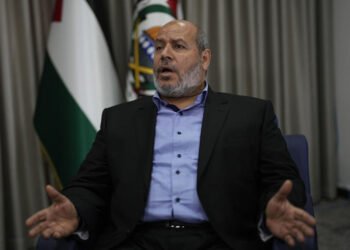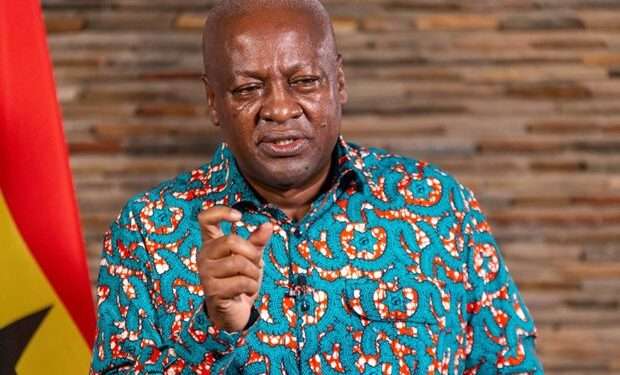Russian Prime Minister, Mikhail Mishustin has stated that Russia is interested in bringing cooperation with Iran to a higher level.
He said this during talks with Iranian First Vice-President Mohammad Reza Aref in Iran.
Mishustin arrived in Iran on an official visit early on Monday, September 30, 2024.
Aside meeting with Aref, Mishustin is slated to hold talks with the Iran’s President, Masoud Pezeshkian.
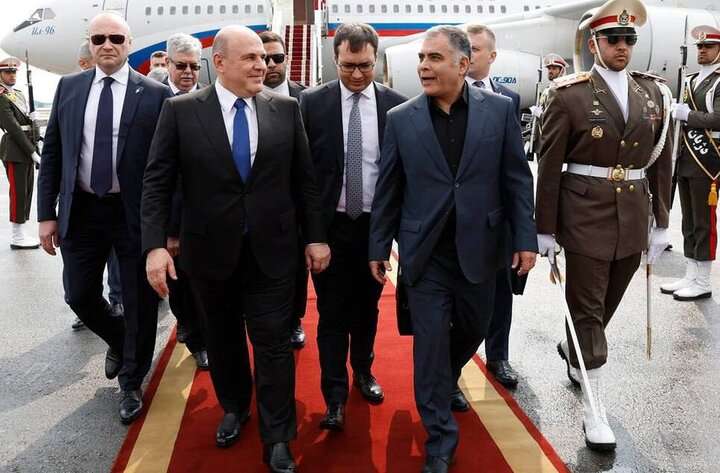
Per Russian government’s press service reports, they plan to consider the whole range of issues of Russian-Iranian trade and economic, cultural and humanitarian cooperation, including the implementation of major joint projects in transportation, industry, energy, education, and other spheres.
Mishustin noted that relations between Russia and Iran go back centuries, and are based on the principles of friendship, good neighborliness, and mutual respect.
He iterated that Russia is genuinely interested in bringing cooperation with Iran to a higher level, “giving it more substance.”
He recalled that relevant decisions were made by the leaders of the two countries to foster this increased cooperation.
“We welcome Iran’s firm decision to further strengthen its strategic partnership with Russia and fully support this approach,” Mishustin said.
Also, the Prime Minister emphasized that Russia prioritizes expanding trade and economic cooperation, diversifying bilateral trade, and enhancing its structure, and proposed continuing efforts to increase trade turnover.
“And, of course, we believe it is important to create the most favorable conditions for organizing a number of major investment projects in various fields,” Mishustin said.
He stated that in order to do this, the joint permanent Russian-Iranian commission on trade and economic cooperation, headed by Energy Minister Sergey Tsivilev, would play a big role.
“We consider logistics and transportation infrastructure as the most promising sphere. Russia and Iran have great transit potential both in the Caspian region and in Eurasia.
“We are actively developing international corridors: the International North-South Transport Corridor connects Russia’s Baltic and northern ports with Iranian ones in the Persian Gulf and in the Indian Ocean, it provides all Eurasian states with direct access to the rapidly growing markets of the Asia-Pacific region and Africa.”
Mikhail Mishustin
Additionally, he noted that Moscow also attaches great importance to humanitarian cooperation.
“I know that Iran has recently seen a growing interest in Russian-language education, particularly higher education,” he said.
He mentioned that over the past four years, the number of Iranian students studying at Russian universities has tripled to 8,000.
“There is great potential in the field of our tourist exchanges; in particular, thanks to the decision on visa-free travel for tourist groups, the number of our citizens traveling to Iran increased by 52%, and today Iranian tourists have an opportunity to get an electronic visa to come visit Russia.”
Mikhail Mishustin
The prime minister noted various projects that Moscow and Tehran have in the fields of infrastructure, transportation logistics, energy, agriculture, high-tech solutions, industry, cultural, and humanitarian issues, after which he suggested moving to discuss said subjects.
Aref Calls For Cooperation In Neutralizing Sanctions
Referring to the Western sanctions imposed on both Iran and Russia, Aref said that the two countries need to work together to find ways to neutralize these sanctions.
“We believe that if important joint projects between Iran and Russia are implemented, they will create significant capacities for both countries to counter cruel sanctions,” Pezeshkian said during a meeting with Mishustin.
The Iranian President underscored that the Iran-Russia partnership not only serves the interests of both nations but will also promote sustainable development, economic growth and integration in the region.
Pezeshkian called for efforts from both sides to ensure the successful execution of the joint projects.
He pointed out that regional cooperation through international organizations like BRICS and the Shanghai Cooperation Organization (SCO) strengthens independent countries, including Iran, Russia, and China, in their efforts to resist US unilateralism.
READ ALSO: Trigmatic Expresses Concerns Over Lack of Recognition in Music Industry




